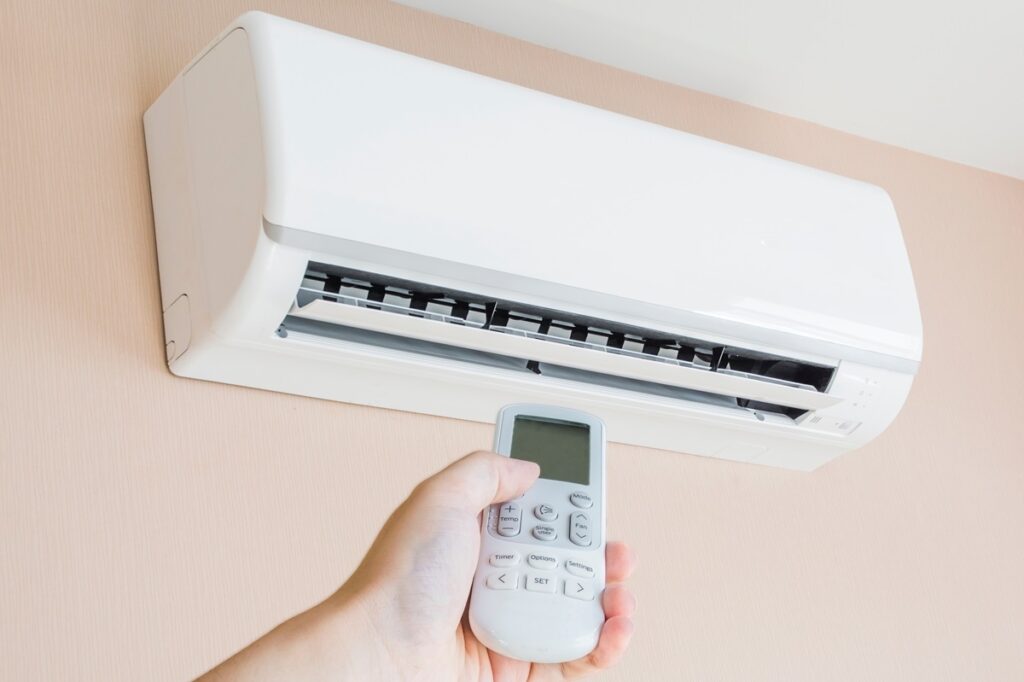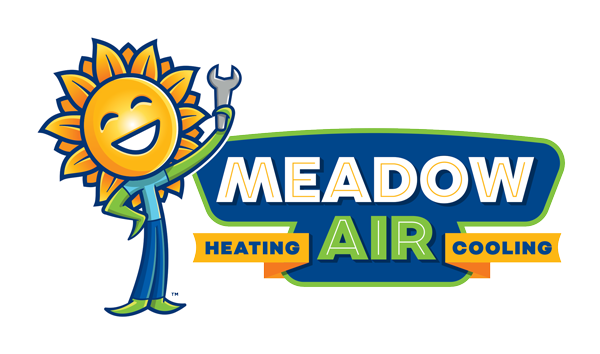AC Not Blowing Very Hard: Causes, Troubleshooting, and How to Improve Airflow

Often, a complete air conditioner failure is the result of an earlier, unaddressed issue, whether it was overlooked or deemed minor.
One such issue is the AC not blowing very hard – however, leaving it be is a mistake, as not only can you cause your appliance to be more susceptible to further damage, but it will also affect how comfortable you feel in your home.
So, what are some of the most common causes of AC barely blowing air? Well, that depends on whether that affects only one vent or multiple. In the first scenario, the most common causes are disconnected or leaky air ducts or closed dampers. If the issue is noticeable to more than one vent, it might be because you have a dirty air filter, frozen evaporator coil or blocked return vents, among other things.
How do you fix them? That’s what we’ll be talking about in this article.
Why Is My AC Not Blowing Hard – Common Causes of Weak Airflow
If you’re standing helpless in front of your AC thinking, “Why is my AC barely blowing air?” we’ve got you. As mentioned, determining the cause of weak airflow needs to start with finding out whether the issue is noticeable in only one of the vents or multiple.
One Air Vent Malfunctioning
Here are the common causes of one air vent not blowing air properly:
- Damaged flex ducts – If your air conditioning unit uses flex ducts, chances are that the weak airflow is caused by one of them getting crushed, which prevents proper passage of air due to reduced space. Depending on how many of them got damaged, the issue can affect one or multiple areas of your home.
- Disconnected or leaky air duct – It’s possible that some of the ductwork has become disconnected, either due to age or improper installation.
- Closed dampers – A damper is a valve located in your AC that prevents the air from getting into a specific space, and sometimes it might accidentally close on its own, causing restricted airflow. Typically you should be able to open them yourself, especially if you have electronic dampers.
Multiple Air Vents Malfunctioning
If the problem is noticeable in more than one space, chances are that the issue you’re dealing with is either:
- Dirty air filter – Although we often forget about it, cleaning and replacing your air filters regularly is very important, not only for proper airflow, but also for your health and air quality. With a dirty air filter, cooled down air has less space to enter the room, and once it does, it takes with itself the debris and dirt collected on the filter, especially dangerous for those with allergies or sensitive to dust.
- Frozen evaporator coil – The evaporator coil is responsible for cooling down the air. However, sometimes it can get too cold, and in combination with moisture, it will cause the evaporator coil to freeze.
- Blower issues – Another element that can get dirty and as a result can restrict airflow in your air conditioner is the blower. What does it do exactly? Without it, the air would simply not move, as it is responsible for pulling warm air into the AC, letting it run over the evaporator coil and releasing it back into your home as cold air. If it doesn’t work as it should, the movement will not be strong enough, which will cause reduced airflow on the cold side as well.
- Blocked or undersized return vents – Your return vent should never be obstructed, as it’s where warm air gets pulled into the AC. If it’s blocked, the air has no way of entering your air conditioning system. Another reason that causes weak airflow, which is notable after you change your air conditioning system, is when the vents are too small for your units.
When to Call a Professional
Which of these can you try and fix yourself?
| ISSUE |
CAN FIX ON YOUR OWN |
REQUIRES PROFESSIONAL HELP |
| Damaged flex ducts | ✘ | ✔ |
| Disconnected or leaky air ducts | ✘ | ✔ |
| Closed dampers | ✘ | ✔ |
| Dirty air filter | ✔ | |
| Frozen evaporator coil | ✔ | |
| Blower issues | ✘ | ✔ |
| Blocked or undersized return vents | ✔ |
As you can see, there are a few things you can do yourself, but if they don’t change the air flow, you will still need to call a professional as there’s a possibility that the issue goes deeper and is more serious than initially expected.
Troubleshooting Steps
You might be wondering “How do I fix my AC not blowing air?” While we would recommend calling a professional for most weak air flow related issues, as the problem might be more serious than it seems at first glance, there are a few things that you can easily do yourself.
Dirty Air Filter
Changing the air conditioning filter is pretty straightforward:
- Turn off the AC and cut the power.
- Locate the filter.
- Remove the filter and check whether it’s dirty enough to cause restricted airflow by holding it up to light.
- Clean the filter, and if it’s very dirty, replace it with a new one. Make sure to dispose of the old filter properly.
- Install the new filter.
- Check whether the airflow has improved. If it didn’t, look for other causes of restricted airflow or call a professional.
Frozen Evaporator Coil
The most common cause of a frozen evaporator coil is a refrigerant leak. To fix it:
- Turn off the AC.
- Allow the frozen coil to thaw for a few hours.
- Once the ice is gone, you can add more refrigerant to increase its levels.
- Don’t turn the AC on until there’s no more ice.
- Check if thawing the ice helped the airflow. If it didn’t check for other causes.
Blocked Return Vents
If your return vents are blocked, there’s not much of a troubleshooting you can do aside from moving whatever it is that is obstructing them.
Long-Term Solutions for Optimal Airflow
Here are a few things you can do to ensure optimal airflow in the future:
- Change the air filter regularly. How often that is will depend mainly on manufacturer recommendations and the state of your filter.
- Have your AC professionally checked. Making sure that your air conditioner is in top condition is one of the most important things for ensuring optimal airflow. Schedule an annual tune-up of your air conditioner, so that all of its elements, even when hidden from your eyes, can be checked and taken care of, increasing your AC’s lifespan.
- Make sure no vents are blocked or obstructed. It’s very easy to not even notice that something is blocking your vent, so just take a look at them each time you’re passing by.
- Ensure your home is properly insulated. This usually does not directly affect your AC’s airflow, but it does affect the efficiency of your unit. If your home is not properly insulated, air will get inside your home, causing your AC to work harder. The strain can sometimes cause weaker airflow.
- Replace the AC unit. If your AC unit already has some years on it, and you notice it is not working as well as it used to be, a better idea often is to just replace the air conditioner completely with a new one.
The Bottom Line
Your air conditioning unit will experience some issues during its lifespan – it’s only natural. One of the most common problems you might encounter is restricted airflow. While there are a few causes of it, most of them should be addressed by a professional AC technician – although there are a few things you can try to do yourself before taking that step.
Even though it’s impossible to prevent it completely, having an AC technician inspect your unit once a year can help catch issues early on before it results in further damage. Get in touch with us and schedule an AC maintenance appointment in just a few clicks!
